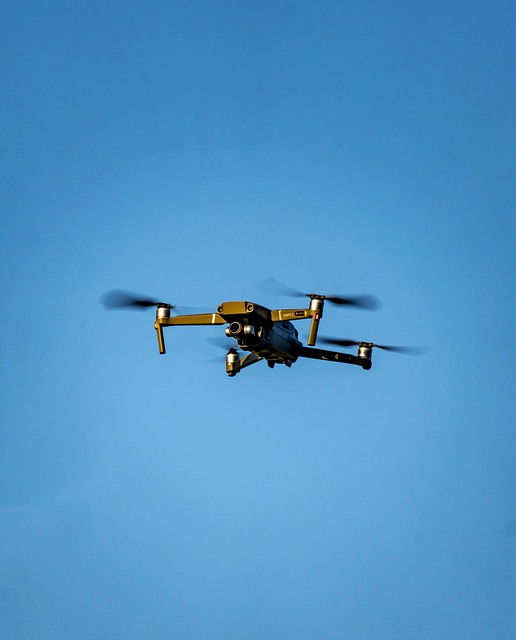# AI and the Future: Understanding Its Impact on Society, Innovation, and Everyday Life
Artificial Intelligence (AI) has rapidly evolved from a theoretical concept into a pivotal force that shapes our world. As we stand on the brink of a new technological era, understanding the implications of AI on society, innovation, and everyday life is crucial. This article delves into the multifaceted impact of AI, exploring its transformative potential and the challenges it presents.
## The Societal Impact of AI
Society is undergoing a profound transformation as AI technologies become increasingly integrated into various sectors. One of the most significant changes is the way AI influences employment. Automation, powered by AI, is reshaping job markets globally. While some jobs are at risk of becoming obsolete, new opportunities are emerging in AI development, data analysis, and machine learning. The challenge lies in ensuring that workers are equipped with the necessary skills to thrive in this evolving landscape. Educational institutions and governments must collaborate to create training programs that prepare the workforce for the demands of an AI-driven economy.
Moreover, AI is redefining social interactions. Social media platforms and messaging applications utilize AI algorithms to enhance user experience, tailoring content to individual preferences. This personalization fosters a sense of connection, yet it also raises concerns about echo chambers and the spread of misinformation. The ability of AI to analyze vast amounts of data can lead to both positive outcomes, such as improved communication, and negative consequences, including the manipulation of public opinion. As a society, we must navigate these complexities to harness AI’s benefits while mitigating its risks.
In addition to employment and social interactions, AI has significant implications for privacy and security. The deployment of AI in surveillance systems raises ethical questions about individual rights and freedoms. Facial recognition technology, for instance, has been adopted by law enforcement agencies to enhance public safety. However, the potential for misuse and bias in these systems prompts a critical examination of privacy rights. Striking a balance between security and civil liberties is essential as we integrate AI into our daily lives.
## Innovation Driven by AI
Innovation is a cornerstone of human progress, and AI is emerging as a catalyst for groundbreaking advancements across various industries. In healthcare, AI technologies are revolutionizing diagnostics and treatment plans. Machine learning algorithms analyze medical data to identify patterns that may elude human practitioners, enabling earlier detection of diseases and personalized treatment strategies. The potential for AI to enhance patient outcomes is immense, yet it also necessitates rigorous ethical considerations to ensure patient privacy and data security.
Furthermore, the automotive industry is experiencing a paradigm shift due to AI-driven innovations. Autonomous vehicles, powered by sophisticated AI algorithms, promise to enhance road safety and reduce traffic congestion. Companies like Tesla and Waymo are at the forefront of this revolution, pushing the boundaries of what is possible. However, the transition to fully autonomous vehicles raises questions about liability in accidents and the regulatory frameworks needed to govern this technology. As we embrace these innovations, it is imperative to address the ethical and legal implications that accompany them.
In the realm of creativity, AI is beginning to play a role that was once thought to be uniquely human. Artists, musicians, and writers are exploring the use of AI-generated content to inspire their work. Tools powered by AI can compose music, generate artwork, and even assist in writing novels. This intersection of technology and creativity challenges traditional notions of authorship and originality. As AI continues to evolve, it will be essential to foster a dialogue about the role of AI in creative processes and its impact on artistic expression.
## Everyday Life Enhanced by AI
The integration of AI into everyday life is perhaps the most visible aspect of its impact. Smart home devices, powered by AI, are transforming how we interact with our living spaces. From voice-activated assistants like Amazon’s Alexa to smart thermostats that learn user preferences, AI is enhancing convenience and efficiency in our homes. These technologies not only streamline daily tasks but also contribute to energy savings and improved quality of life.
Transportation systems are also benefiting from AI advancements. Ride-sharing apps, such as Uber and Lyft, leverage AI algorithms to optimize routes and match drivers with passengers efficiently. Public transportation systems are increasingly using AI to analyze traffic patterns and improve service reliability. The convenience brought by these innovations is undeniable, yet it also raises questions about the future of traditional taxi services and the implications for urban planning.
In the realm of personal finance, AI is reshaping how individuals manage their money. Financial institutions utilize AI algorithms to detect fraudulent activities, assess credit risks, and provide personalized investment advice. This democratization of financial services empowers consumers to make informed decisions about their finances. However, the reliance on AI in financial matters necessitates transparency and accountability to build trust among consumers.
## Conclusion
In conclusion, the impact of AI on society, innovation, and everyday life is profound and multifaceted. As we navigate this rapidly evolving landscape, it is essential to remain vigilant about the ethical considerations and societal implications of AI technologies. Collaboration among stakeholders—governments, businesses, and educators—will be vital in harnessing the potential of AI while addressing the challenges it presents. By fostering a responsible approach to AI development and implementation, we can ensure that this powerful technology serves as a force for good, enhancing our lives and driving progress in a way that is equitable and sustainable. The future is here, and it is shaped by the choices we make today.











